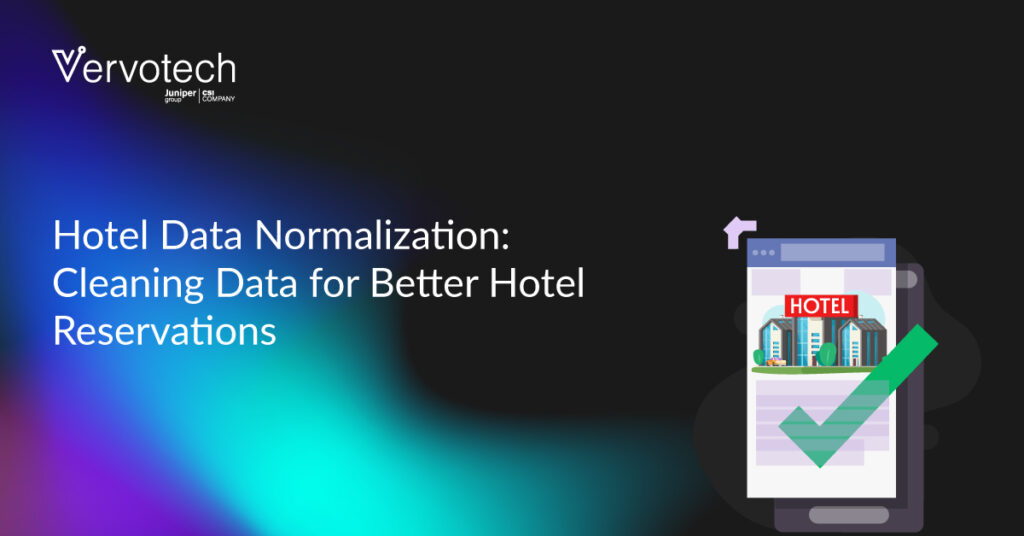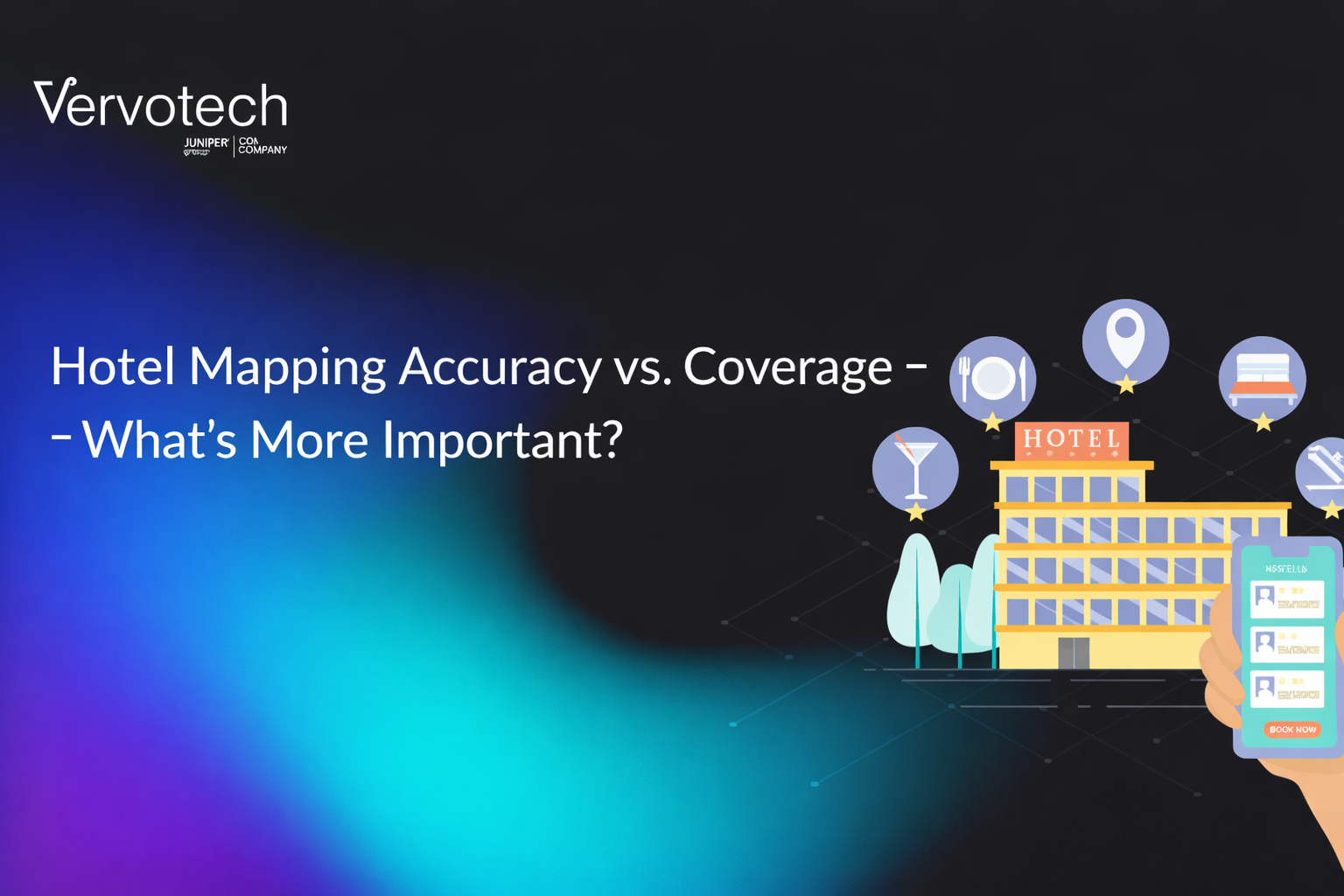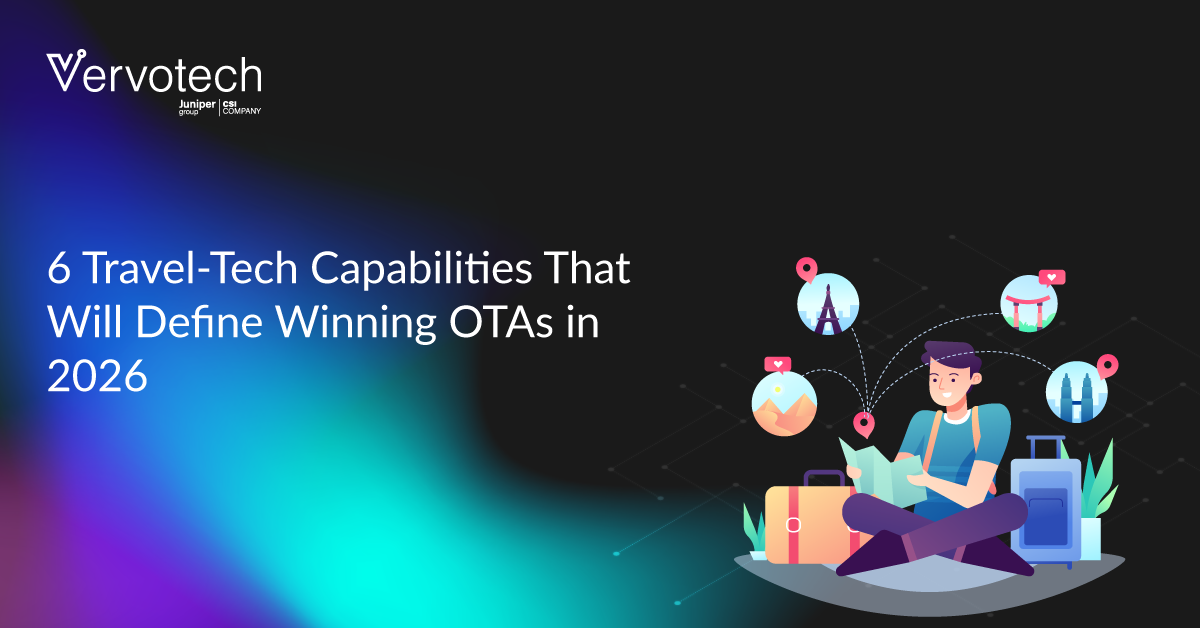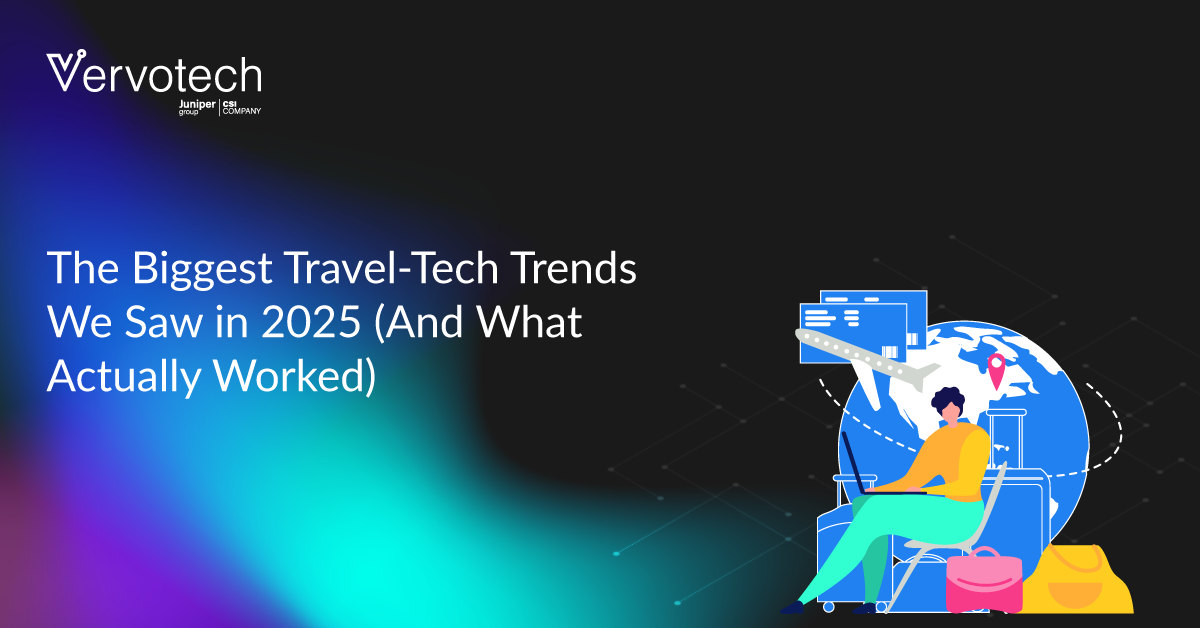In this big data era, any form of data is a gold mine for decision-makers and data analysts. Data has the power to streamline business operations, transform customer experience, and elevate business revenue. According to Statista, by 2029, the big data market is expected to reach over $655 billion. One challenge that travel agencies, travel management companies, or tour operators face is obtaining standardized hotel data and easy-to-read datasets. This can be solved by hotel data normalization. Let’s dive into understanding its importance and how it can increase hotel reservations.
TL; DR
- Hotel data normalization is the process of cleaning, organizing, and deduplicating hotel data to eliminate inconsistencies and improve database performance.
- Without normalization, the same hotel can appear multiple times under different names or formats, confusing users and harming customer experience.
- Vervotech’s AI-powered tool offers clean, high-quality, and verified hotel data by scanning, tagging, and curating content from 600+ suppliers.
- The goal is to help OTAs, TMCs, and travel companies display accurate hotel information, improve booking experiences, and support better business decisions.
- The top 5 benefits of hotel data normalization include:
- Improved database organization for faster data analysis.
- Eliminates duplicates, making datasets easier to work with.
- Reduces data redundancy, boosting processing speed and keeping content fresh.
- Frees up storage space, enhancing system performance.
- Enables quick data sorting, helping identify trends for smarter business decisions.
What is hotel data normalization?
Hotel data normalization is the process of organizing hotel data in a database to eliminate data redundancy and make the database more efficient. It is a process to develop clean, deduplicated, and structured data so that the final data is accurate and free of duplicate records. Basically, data normalization eliminates ambiguity and unstructured data around a hotel property’s information and improves the usability of the hotel data set. Additionally, normalized databases take less disk space and increase overall performance.
Hotel data normalization works for hotel name, street address, hotel phone numbers, static room information, hotel property type, country code, and much more.
Below is an example of how hotel data normalization works on raw data and ensures the database is decluttered, organized, and usable in strategic business decisions.
Also Read – Predictive Market Intelligence: A Secret Weapon for Online Travel Agencies
| Raw Hotel Data | Normalized Data | Benefit |
| Supplier 1: Caesar Suites, Las Vegas hotels Supplier 2: Caesar Suites at Palace |
Caesars Suites at Caesars Palace, Las Vegas | Helps reduce duplicate hotel entries if matching requirements include hotel name |
| 911234569 | 911-234-569 | Prevents wrong dialing and makes dialing easy |
| 2 BR sea view room | 2 bedroom with sea view | Helps reduce duplicate room entries if matching requirements include room name |
| crescent Rd, Dubai | Crescent Road, Dubai | Standardized address |
Why is hotel data normalization necessary?
According to our research, on average, a single hotel gets listed 9 times on an OTA’s platform. Can you imagine the damage it does to customer experience?
For example, the luxury hotel resort- Atlantis, The Palm, Dubai can be displayed on an OTA’s platform as
- Atlantis Resorts, Dubai
- Dubai, The Palm Atlantis
- Palm Jumeriah
- Atlentis, Palm, DXB
If you observe, the same hotel is written in different formats or misspelled. The same happens for other hotel attributes such as hotel street address, phone number, room names, location, etc. This leads to duplicate hotel data,
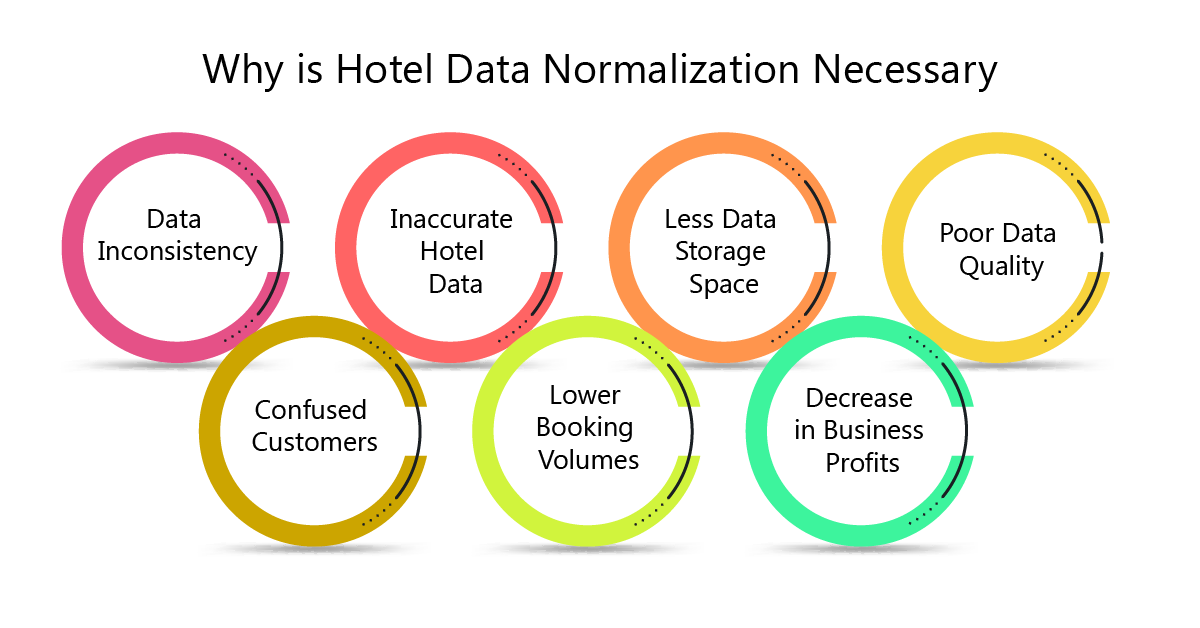
Why is hotel data normalization necessary? Advantages of hotel data normalization
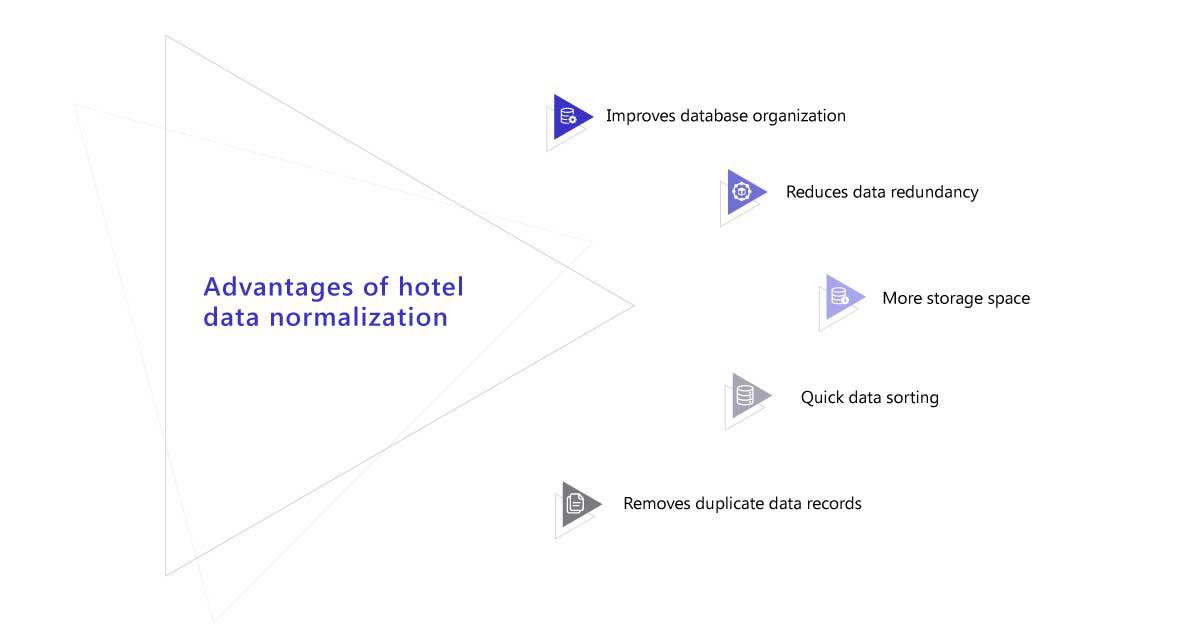
Here are 5 benefits of hotel data normalization:
1. Improves database organization
After data normalization, the database is organized with high-quality and valuable data. This reduces data management time and helps with data analysis quickly.
2. Removes duplicate data records
Normalizing hotel data will remove the number of duplicates from your database. This method groups duplicate hotel data into one category, which makes it easy to read and analyze large datasets.
3. Reduces data redundancy
Data redundancy is a common data storage issue, and reducing data redundancy will speed up the data processing time, and the organized database will be regularly updated with the latest hotel content.
4. More storage space
Data normalization reduces duplicates and data redundancies, which frees up gigabytes and terabytes of space. More storage space will result in faster system performance and efficient data analysis.
5. Quick data sorting
Normalized database helps travel businesses get answers to simple questions like- “how many bookings did I have in Florida?” or “where are my customers traveling to most this month.” Data normalization helps spot patterns or trends that can help you design travel packages or discounts for your customers.
Why Choose Vervotech for Hotel Data Normalization?
Vervotech’s AI-powered Curated Content tool provides high-quality hotel data so that OTAs, TMCs, DMCs, tour operators, or any accommodation provider can showcase accurate hotel information on their website. Our intelligent AI algorithms scan, identify, and tag accurate hotel data such as detailed hotel addresses, property type, room images, geocodes, star ratings, and much more. Our team of content analysts verifies images sent by over 600 suppliers and then delivers high-quality HD hotel and room images. Currently, we deliver highly accurate master room content of more than 100,000 hotels, manually curated and verified by our team of mapping experts. Our goal is to provide normalized hotel data so our clients can easily make strategic business decisions and enhance their customer booking experience.
FAQs
How is hotel data normalization different from hotel mapping?
There’s not a stark difference between the two. Hotel mapping involves matching hotel content (like amenities, images, room types) across different suppliers or sources into a group and assigning it a single standardized hotel ID. While normalization focuses on cleaning and structuring data, mapping ensures consistency across multiple data sources.
How does normalized hotel data improve customer experience?
It eliminates duplicate listings, ensures consistent hotel information, and makes it easier for users to compare and book accurately, leading to a smoother, more trustworthy booking process.
What are the benefits of reducing data redundancy in hotel databases?
It improves database efficiency, saves storage space, speeds up data processing, and ensures that hotel content stays up to date.
How can poor hotel data quality affect revenue for OTAs and travel companies?
Inaccurate or duplicate listings can cause customer mistrust, booking errors, and lost conversions. It can also lead to increased customer support costs due to confusion or complaints.
What role does AI play in automating hotel data management?
AI-native models can automatically detect duplicates, correct inconsistencies, enrich content (like adding missing images or geocodes), and ensure real-time updates, reducing manual effort and increasing accuracy.
Can hotel data normalization improve personalization on travel platforms?
Yes. Clean and accurate data allows platforms to apply filters, recommend relevant hotels, and offer personalized deals or packages, enhancing user experience and increasing conversions.
How does Vervotech help with hotel data normalization?
Vervotech uses AI-powered mapping and expert curation to deliver accurate, deduplicated hotel and room content, enabling OTAs and travel businesses to make informed decisions and enhance customer bookings.

